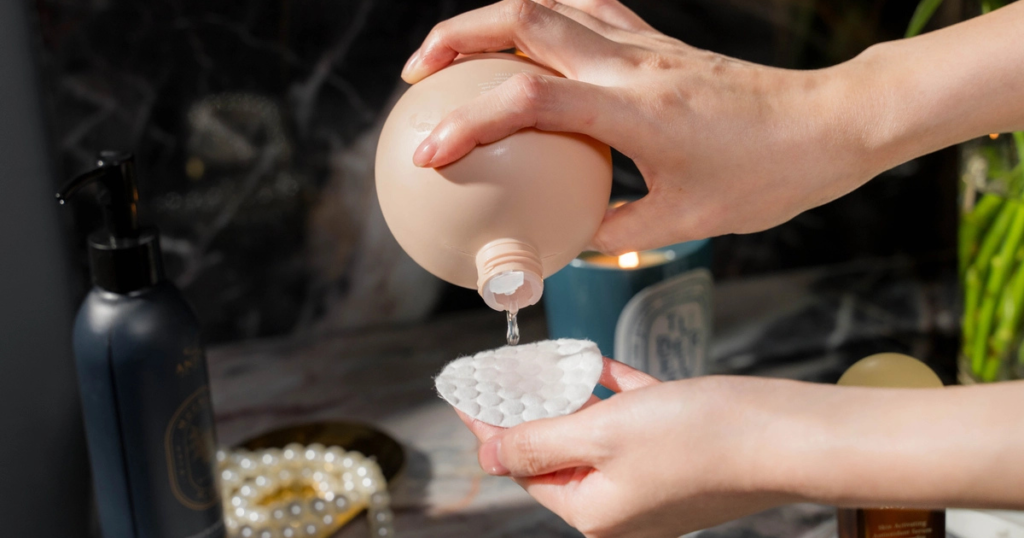Hydration is the key to achieving a radiant, healthy complexion. Properly hydrated skin appears plump, youthful, and glowing, while dehydration can lead to dryness, dullness, and premature aging. To maintain a balanced and luminous complexion, it’s essential to follow a dedicated hydrating skincare routine. This guide will take you through the ultimate hydration-focused skincare regimen to keep your skin nourished and glowing.
Hydration is essential for maintaining the skin’s natural barrier, elasticity, and overall health. When skin lacks moisture, it becomes more prone to irritation, breakouts, and fine lines.
- Dry and flaky patches
- Dull and tired-looking complexion
- Tight or rough texture
- Increased sensitivity
- Fine lines that appear more pronounced
A hydrating cleanser helps to cleanse the skin without stripping away essential moisture. Avoid harsh foaming cleansers that contain sulfates, as they can be drying.
- Hyaluronic Acid – Retains moisture and plumps the skin
- Glycerin – Attracts water to the skin
- Aloe Vera – Soothes and hydrates
Use a gentle, non-foaming cleanser morning and night to keep your skin clean and hydrated.
Regular exfoliation helps to remove dead skin cells that can prevent hydrating products from penetrating deeply into the skin.
- Lactic Acid – A mild AHA that exfoliates while maintaining hydration
- PHA (Polyhydroxy Acid) – Provides gentle exfoliation without irritation
- Enzyme Exfoliants – Derived from fruits like papaya and pineapple for a mild exfoliation
Exfoliate 2-3 times a week to maintain a smooth and radiant complexion.

Toners help to balance the skin’s pH levels and provide an extra layer of hydration before applying serums and moisturizers.
- Rose Water – Soothes and refreshes the skin
- Chamomile Extract – Reduces inflammation
- Cucumber Extract – Hydrates and cools the skin
Apply toner with a cotton pad or gently pat it into the skin with your hands.
Serums contain concentrated active ingredients that deeply penetrate the skin to provide lasting hydration.
- Hyaluronic Acid Serum – Attracts and retains moisture
- Niacinamide – Strengthens the skin’s barrier and reduces water loss
- Snail Mucin – Locks in hydration and promotes healing
Apply a few drops of serum to your face and neck after toner, morning and night.
A good moisturizer seals in hydration and prevents moisture loss throughout the day.
- Ceramides – Strengthen the skin’s barrier
- Shea Butter – Deeply nourishes dry skin
- Squalane – Mimics the skin’s natural oils for hydration
Use a lightweight gel moisturizer for oily skin and a rich cream-based moisturizer for dry skin.
The skin around the eyes is thinner and more prone to dehydration, leading to dark circles and fine lines.
- Caffeine – Reduces puffiness
- Peptides – Promotes collagen production
- Hyaluronic Acid – Provides deep hydration
Gently pat a small amount of eye cream around the eye area using your ring finger.

Facial oils help to lock in moisture and add an extra layer of nourishment.
- Jojoba Oil – Balances natural oils
- Argan Oil – Deeply hydrates without clogging pores
- Rosehip Oil – Improves skin texture and moisture retention
Apply a few drops of facial oil as the last step in your nighttime routine.
Overnight masks provide intense hydration while you sleep, leaving your skin plump and refreshed by morning.
- Aloe Vera – Soothes and hydrates
- Centella Asiatica – Repairs and strengthens the skin
- Honey – Retains moisture and softens skin
Apply a thin layer before bed and wake up to softer, hydrated skin.
Sun exposure can lead to dehydration, premature aging, and skin damage. A good SPF protects the skin while maintaining moisture levels.
- SPF 30+ with Hyaluronic Acid
- Moisturizing Sunscreens with Aloe Vera
- Mineral Sunscreens with Zinc Oxide
Apply a generous amount of sunscreen every morning, even on cloudy days.
Also Read: The Ultimate Lip Care Routine For Soft & Smooth Lips
Achieving radiant, hydrated skin requires a consistent skincare routine focused on moisture retention and barrier protection. By incorporating hydrating cleansers, serums, moisturizers, and protective sunscreen, you can maintain a glowing complexion year-round. Remember, hydration starts from within, so drink plenty of water and eat a skin-friendly diet rich in antioxidants and essential nutrients.
Hydration should be a daily practice, including morning and nighttime skincare routines.
Yes! Drinking at least 8 glasses of water daily helps keep your skin hydrated from within.
A routine that includes a gentle cleanser, hydrating toner, serum, moisturizer, and sunscreen is best for dehydrated skin.
Hydrating masks 2-3 times a week provide extra moisture, but daily use is not necessary.
Signs of dehydration include dry patches, tightness, dullness, and increased fine lines.

